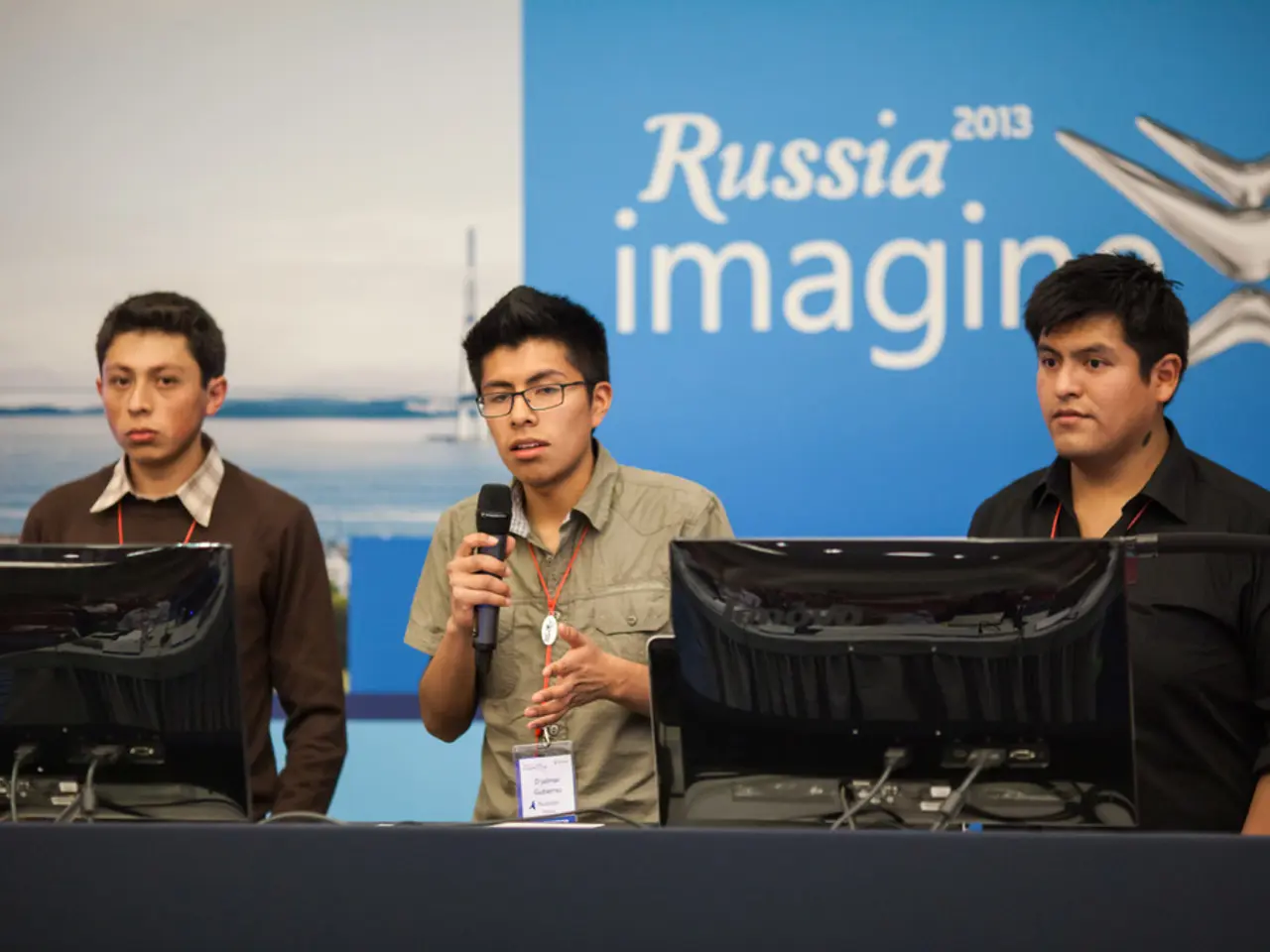Trump Delivers Remarks in Alaska's Presence
In a historic meeting in Alaska, U.S. President Donald Trump and Russian President Vladimir Putin discussed the contentious issue of territorial exchange. The talks, held on August 15, 2025, revolved around Russia's demands for territorial annexations in the Donbas region and Ukraine ceding sovereignty over Crimea [2].
Trump expressed optimism about the talks, stating that he is not there to negotiate on behalf of Ukraine, but to facilitate dialogue between the two nations. He did not specify the nature of the security guarantees that the U.S. will provide to Ukraine, but reiterated that they will not be under the auspices of NATO [1].
On the other hand, Russian Foreign Minister Sergey Lavrov insisted that future negotiations be based on the 2022 Istanbul framework. This framework includes Russia's demands for strong security guarantees, which would neuter Ukraine's military capacity to prevent future Russian aggression [1]. Lavrov also indicated Russia's willingness to sign an agreement based on this framework.
Ukrainian President Zelenskyy and several European leaders met with President Trump in Washington, DC, on August 18, 2025, to discuss these Russian demands and efforts to end the conflict. In this meeting, Ukraine received President Trump’s support for direct talks with Putin aimed at ending the war, but no pressure was put on Ukraine to give up territory — the decision was left up to Ukraine and Putin themselves [2].
Trump's stance towards Russia is one of mutual respect, acknowledging the difficult times the Russian economy is facing. However, he warned of serious economic consequences for Russia if negotiations fail. He did not provide specific details about the nature of these consequences [1].
Trump also emphasized that the war will not allow for business to proceed, implying that a peaceful resolution is essential for economic progress. He stated that he will discuss this matter with Putin later [1].
In summary, Russia demands territorial concessions from Ukraine, while Ukraine seeks to maintain its sovereignty. The U.S., under President Trump, is positioned as a mediator, advocating direct talks between Ukraine and Russia without imposing territorial compromises on Ukraine [1][2]. The U.S.'s role involves diplomacy with both nations plus European partners, aiming for negotiations but without definitive results in terms of ceasing hostilities or reversing territorial control [2]. This complex negotiation process reflects a delicate balance between Russia's maximalist territorial demands, Ukraine's desire to maintain its sovereignty, and the U.S.'s role as a mediator.
In light of the ongoing war-and-conflicts between Russia and Ukraine, discussions surrounding policy-and-legislation, particularly territorial exchange, are at the forefront of politics. General-news outlets are closely monitoring the dialogue between world leaders, including President Trump's advocacy for peace talks and his reluctance to pressure Ukraine into agreeing to territorial concessions.




